Most people wouldn’t pick science as a career that cares for people. Doctors? Tick. Counsellors? Tick. Social workers? Tick. But scientists – really? Well, yes. Science does have a heart.
Here are some of our scientists doing research with a social conscience, science that improves people’s lives, especially people disadvantaged by poverty, ill-health or living in remote areas. Their work helps people in Australia and overseas. It’s our science with a heart. We’ve picked 4Ps to tell you about each – person, project, pluses and perceptions.
We hope their stories will inspire you to enter our poetry competition to declare your heart for science – be quick!
Scott Martin: Simple sensors to diagnose disease – via mobile phone
- Scott Martin designs sensors to diagnose disease.
- Cheap sensors could be built into phones to help detect disease.
Project:
We’re developing an inexpensive mobile-phone-based sensor to diagnose disease. The project is a collaboration between CSIRO and the Nossal Institute for Global Health.
Pluses:
Cheap, rapid diagnosis of infectious diseases such as malaria or tuberculosis. These are major diseases in developing countries.
Perceptions:
It’s invigorating to be part of a very diverse team – from different backgrounds and locations. From research nurses and health application developers in Melbourne, e-Nose specialists in Canberra, to physicists and machine learning gurus in Sydney. Together we are building a product that could save significant suffering in the world and that has to feel good! It’s still in research and there’s a long way to go and many challenges to overcome, but the possibilities are very motivating.
Dana Bradford: Helping elderly people live at home longer
Project:
Smarter Safer Homes for the Ageing – Pilot Study.
This project aims to enhance the quality of life of aged Australians and their families. With the University of New England (NSW), and ORCATech (Oregon USA), we’re developing a home-based monitoring and communication system that can take advantage of the national broadband infrastructure.
Pluses:
The goal of the pilot study is to determine the level of monitoring, type of sensors and conference facilities needed to improve quality of life. The monitoring system will aggregate environmental, cognitive, physical, and physiological information from sensors to give a ‘picture’ of the resident and highlight changes that may indicate help is needed. The video conferencing improves communication with families and introduces a telehealth component to aged care at home.
Perceptions:
I love that our sensors can provide an objective assessment on which to base discussions around future care needs while an older person can still provide input and informed consent. I love that this project ensures these valuable community members have the greatest degree of autonomy and dignity.
Ross Darnell: Safer food for Africa
- Bags of seed at local produce merchant.
- Project team field trip preparing for a day of farm visits.
Project:
In Kenya and Tanzania, we’re developing diagnostic tests for moulds in maize (corn). I’m contributing statistical knowhow to find which genotypes of maize are resistant to the moulds that produce aflatoxin. Aflatoxin is a chemical that affects the human liver – poisoning it in the short term and, if untreated, causing liver cancer. Also it causes stunts children’s growth.
Pluses:
We’re helping farmers select the safest types of maize to grow and improve their corn storage to reduce aflatoxins. By reducing potential intake of aflatoxin in African’s staple food, we’re preventing disease and death, and helping children develop into healthy adults.
Perceptions:
We’re capacity-building for local scientists in Tanzania and Kenya – that’s a great buzz. It’s a very good feeling to know you’re helping develop skills and technologies to help monitor the aflatoxin problem. I’m working with scientists from Sydney, Canberra, Brisbane and other parts of the world – a very broad group of people. You feel like you’ve been selected from a global pool. CSIRO’s in there with the knowledge, helping out.
Anthony Ringrose-Voase: Helping farmers use land sustainably in the Philippines
- Anthony Ringrose-Voase is helping farmers in the Philippines access soil information to plan their land use.
- Anthony literally ‘in the field’ in the Philippines.
Project:
Watershed evaluation for sustainable use of sloping agricultural land in the southern Philippines
Pluses:
We’re helping upland farmers in the southern Philippines choose more suitable crops and identify possible soil limitations so they can intensify production. We’re doing this by packaging soil and land information in a form they can use. We’re also helping communities better plan land use to maintain catchments to prevent negative impacts on downstream communities – catastrophic ones like flash flooding and landslides, as well as longer term ones like poor water quality.
Perceptions:
I’m overwhelmed! Seeing the devastation caused by Typhoon Washi in 2011 close to where we work and where 1300 people were killed by flash flooding and landslides adds urgency to what we do. But the scale of the problem in improving upland farming practices, which is where these disasters have their roots, is huge. Upland farmers are usually the poorest and have the least resources to improve their practices. It’s heart-warming to receive the farmers’ gratitude when we work on their farms, but it adds to the feeling of responsibility to produce useful results.
Anthony Chariton: Protecting bush tucker food sources
Project:
Biodiversity under the surface of tropical river floodplains. A National Environment Research Program (NERP) – Northern Australia Hub.
In Kakadu National Park we’re developing ways to provide early warning for saltwater intruding into freshwater floodplain areas of the Alligator Rivers because of sea-level rise due to climate change. We are using bacteria and animals found in floodplain sediments to get early signals of saltwater before changes occur above ground.
Pluses:
Getting early warning of saltwater intrusion into wetlands – this threatens to change the vegetation and habitat for animals like magpie geese and freshwater turtles, which in turn will impact on indigenous bush tucker and the environment.
Perceptions:
The project’s field work in remote areas of northern Australia has been a fantastic experience for me. As a big-city dweller, I’ve had little contact with indigenous people and little exposure to the issues they face or their culture. It’s been an incredible eye-opener working with indigenous rangers in the beautiful Kakadu area. This project has shown me the potential significant impact of climate change on a traditional culture.
Claire Mason: Welfare that works
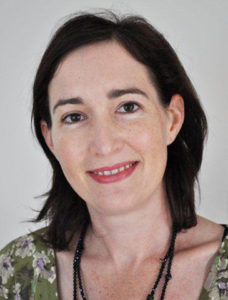
Claire Mason has gained new insights into the importance of social welfare.
Project:
What forms of social welfare do the most good? Knowing this can inform spending decisions made by government departments. We spoke to some of the most disadvantaged and isolated Australians to understand what effects on their lives were achieved from welfare service delivery.
Pluses:
We were able to show that the way welfare services are delivered has the potential to help people in important areas of life such as education, health and self-respect. On the other hand, there were instances where service delivery was seen in a more negative light. This research highlights the social impact of welfare service delivery in the words of the people most affected by it.
Perceptions:
I look back on those interviews as an important life experience. Hearing about the struggles some people have trying to have their individual challenges understood within a large bureaucracy gave real meaning to my work. It also gave me a new insight into the vital importance of our welfare system – not just as a source of money, but as a source of support and connection to other groups and resources.
Feeling inspired – tell us about it
We hope these research stories have inspired you! Why not express yourself via our poetry competition and declare your heart for science.
For more stories about science with a heart visit ECOS Magazine.

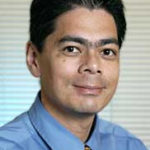
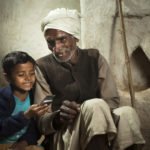
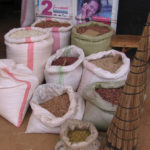
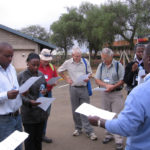
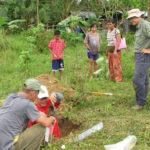
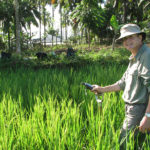

23rd April 2013 at 9:10 am
Amazing! Super significant position. So I am storing the page at this moment. Thanks